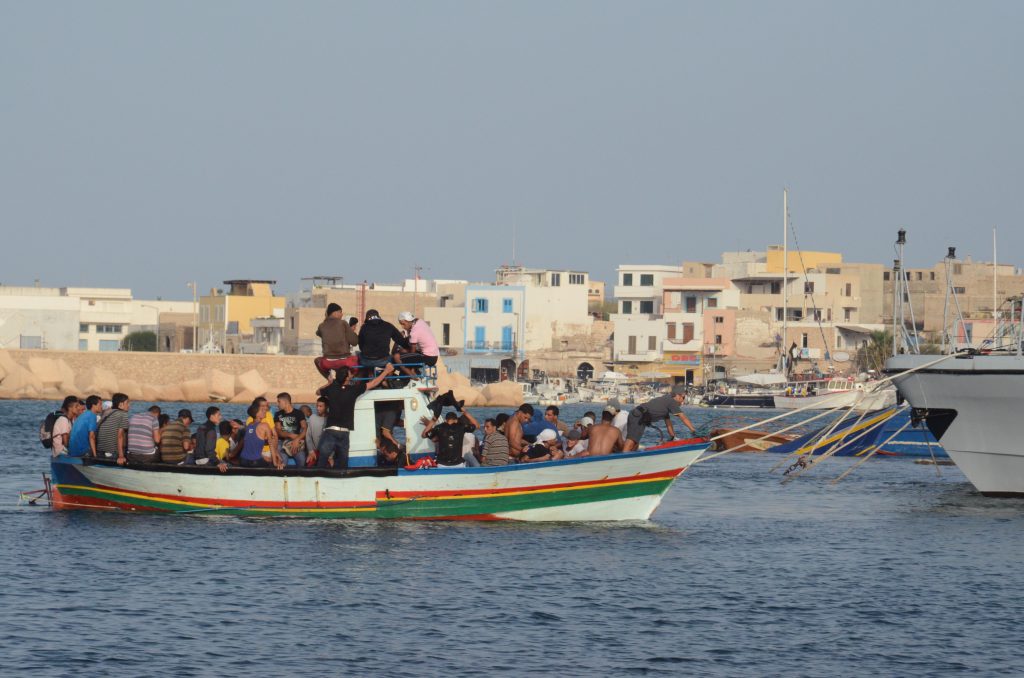The inhumane and dire situation in Libya, with the escalation of the conflict and the spread of the coronavirus, has led to a recent increase in departures. In the sole month of May, around 1,000 people have attempted the Mediterranean Sea crossing. More than 400 were intercepted by the so-called Libyan coast guards and brought back to detention centres near Tripoli. At least two people died during the operation, while 30 migrants were shot dead in revenge for the death of a trafficker in the southwest of Tripoli. Departures from Algeria and Tunisia have also started again, leaving at least one dead and six missing off the Tunisian coast.
Most of the migrants disembarked autonomously in Sicily, Italy, and around 214 people are now held in a quarantine boat, the “Moby Zaza”, off the Italian coast. On 20 May 2020, a man on board the Moby Zaza jumped into the sea and died. At the same time, Malta is also using the excuse of COVID-19 to detain around 300 rescued migrants in unbearable conditions on “Captain Morgan” ferries off its coasts. Malta is also under investigation for using private vessels to push migrants back to Libya and for endangering the lives of 101 people in distress before facilitating their arrivals in Italy. La Valletta threatens to veto the Irini Operation, which started at the beginning of May in front of the Libyan shores, unless other EU countries agree to relocate migrants currently housed on “Captain Morgan” boats. In another worrying move, the Head of the Libyan Government’s Presidential Council, Fayez Al-Sarraj, and the Prime Minister of Malta, Robert Abela, signed last Thursday a memorandum of understanding for migration management and strengthening bilateral relations.
In the context of systematic violations of human rights in the Central Mediterranean, experts and scholars warn that “non-refoulement obligations continue to apply even in emergency situations; a derogation is not permissible under international law”.
Earlier this month, three Maltese NGOs wrote a joint letter to EU Commissioner for Home Affairs, Ylva Johannson, urging the EU to find a swift solution for the migrants detained on the boats; while, in a letter, the Council of Europe’s Commissioner for Human Rights “urges Malta to meet its obligations to save lives at sea, ensure prompt and safe disembarkation, and investigate allegations of delay or non-response to situations of distress”.
Appeals to European states to disembark rescued migrants and refugees on board the “Captain Morgan” vessels also came from UNHCR and IOM, who reminded States of their obligations under international law to provide assistance to boats in distress at sea. They reiterated the fact that Libya ports were not safe.
Migration during the COVID-19 pandemic will be discussed on 15 June as part of our EuroMed Rights webinar series. Find out more.

